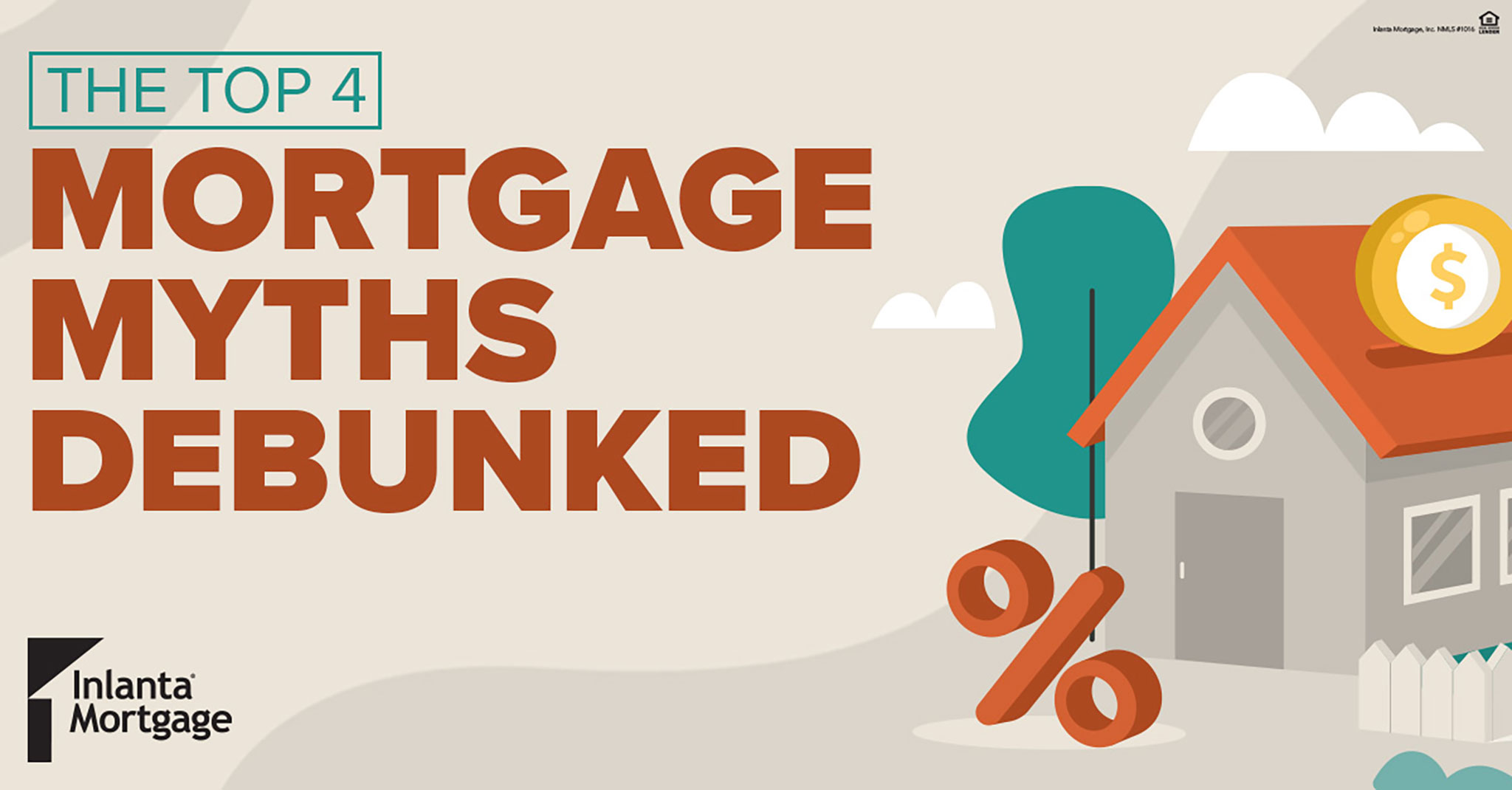
4 Mortgage Myths Debunked
Ghost stories, big foot, the loch ness monster. The mysteries of the unknown can leave us questioning what’s truly real, and what’s not. Certain myths may be best left unknown, however, when it comes to mortgage myths, it’s important to know the truth between fact and fiction.
Here are 4 common mortgage myths to be aware of.
Mortgage Myth #1 – You Need a Perfect Credit Score
Do you have less than perfect credit? No problem! Certain loan programs accept lower FICO scores, allowing you to buy a home without a perfect credit score.
If you’re credit score’s not quite there yet, don’t stress. There are plenty of ways to help improve your credit including making payments on time, swiping responsibly and staying below your limit, for instance. Click here for more tips to build and maintain healthy credit.
Mortgage Myth #2 – You Need 20% Down
It’s a common misconception that you need 20% down to purchase a home. However, the true down payment amount will depend on multiple factors, such as loan program type, credit score and home price/loan amount, for instance.
Certain loan programs, such as VA loans, offer the benefit of low or no down payment options, and others like FHA loans offer as low as a 3.5% down payment.
In addition, depending where you live, there may be local down payment assistance programs available to you based on your situation.
Mortgage Myth #3 – Renting is Cheaper than Buying
It’s not always true that renting is cheaper than buying a home. In fact, in many situations, you may be surprised to find a mortgage payment is actually cheaper than monthly rent.
It’s no secret that rents often change and are likely to increase over time. Therefore, one of the many benefits of homeownership is being able to better control your budget by having a fixed mortgage payment each month. This gives you the security of knowing, above all, exactly how much you’ll spend while avoiding surprise rent hikes from your landlord.
Mortgage Myth #4 – You Can’t Buy a Home with Debt
Got debt? You’re not alone. Many Americans struggle financially and while debt can be a burden to many, it doesn’t have to prevent you from buying a home.
DTI (Debt to Income) ratio is an important factor in determining your readiness to buy a home. In other words, when you apply for a mortgage, your lender will review your finances to determine your DTI by evaluating how much debt you have vs. how much pretax income you’re bringing in. This will help to decide whether you’re able to afford a home.
Talk to a Professional
In conclusion, when it comes to the myths of the mortgage world, it’s wise to discuss what you’ve heard with an expert before deciding your homebuying options.
To learn more about the mortgage process or to find a mortgage advisor in your area, contact us today. Discover how we partner with borrowers like you every day to evaluate their unique financial situations to make their dreams of homeownership come true.